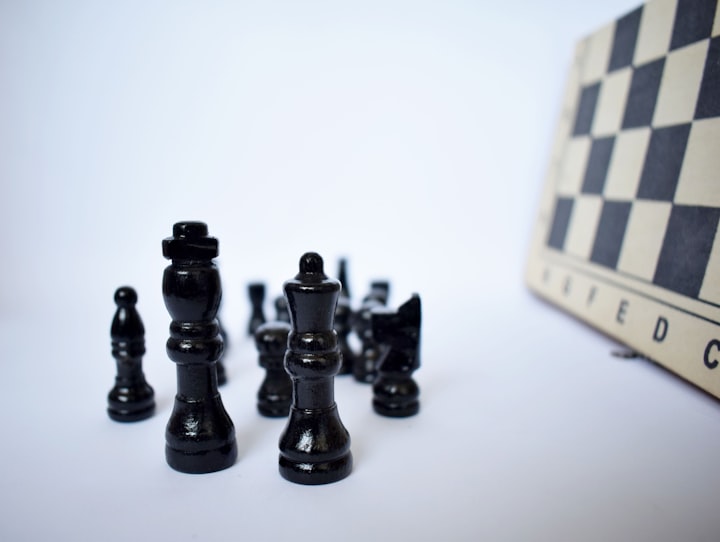3 Things the Dying Taught Me About Living Well
Live as if you are going to die tomorrow. Learn as if you were going to live forever. ”~ Mahatma Gandhi

Live as if you are going to die tomorrow. Learn as if you were going to live forever. ”~ Mahatma Gandhi
I am a nursing instructor.
I care for the spiritual and the dead and their families.
I do this by being with them. I listen to their fears, worries, joys, worries and regrets. I listen carefully to what is said, and I pay close attention to what is said.
When people find out what I do for a living, the response is almost universal: “Oh, that must be hard. I would never do it. ”
I totally get it. In fact, many years before doing this work, I remember responding in a similar way to a hospice volunteer. I was scared to death. I didn't like to think about it or talk about it. I really never thought I would spend my days comforting the dead.
What I didn’t understand back then was that death was not another kind. They are good and courageous people who do not give up just because they die. They are no different from the rest of us, except that they know very well the value of their time in the world.
To my surprise, spending time with the dead taught me many important lessons about life.
Here's what I've learned so far:
1. It's not too late.
Most people who teach about death often say, "Don't wait." Indeed, I can testify that I too have learned this from the dead. I have had patients tell me that they wish they had followed the things they wanted to do. These conversations can be very painful.
But I also went with others who took up new interests as they died. One patient began drawing as a way to process emotions and feelings about death. You have taught yourself, you have found that you are good at it and you have recently created great works of art to share with family and friends.
One patient who had a long and difficult marriage decided to make amends with her partner after receiving her ongoing diagnosis. Most people in this situation would say something like, "We wish we had done this sooner." Instead they said, "This diagnosis has brought us back."
What these incredible examples have taught me is this: It is not too late. Although I fully agree with the advice, "Don't wait," the problem is that most people believe they've been waiting too long and that it's too late.
They believe that it is too late to start a hobby, work, or pursue a lifelong dream. They believe that it is too late to repair a broken relationship or to start a new one.
If something has been going on for months or years, the “Do Not Wait” advice makes sense. If you feel that your time is running out, know that as long as you are still breathing, it is not too late.
As the saying goes, “The best time to plant a tree was twenty years ago. The second best season now. ”
2. It is okay not to have all the answers.
We put a lot of pressure on ourselves to know everything.
That is one reason why we avoid death. There are no easy answers. As a hospital chaplain, I am often asked questions such as, "Why did this happen to me?" or “Why is life so unjust?” or "Where will I go when I die?"
Many patients do not expect me to give them the answers to these questions. They just need a replacement to fight their deepest hopes and anxieties.
And when it comes to death, no one is a specialist. I remember living with a very intelligent man whose work required a lot of answers. During one of our visits, he admitted to me that he was not a death expert and was as scared as everyone else. He also shares the same questions we all have to deal with at some point.
There is something surprisingly liberating about discarding the act of knowing everything. Instead of using our knowledge and wisdom to gain a sense of superiority, we can share in our common personality. We can feel safe confessing to each other, "I don't know." Discarding action deepens communication and intimacy between people.
3. It is right to be wrong.
I once had a patient who on our first visit indicated that he was OK with death. He lived a much better life and felt at peace with his life.
But as his health deteriorated, it became apparent that he was not feeling well about dying. She was young, had children at home, and felt that there were still things she had to do. He became even more concerned about the death process.
At one of our meetings after a struggle with his changing circumstances, he concluded, "I realized I had to be right and wrong." Sadly, coping with the loss of her life helped her to deal with her fears and to bring her a deeper level of peace.
Many of us use our power to convince ourselves and the world that things are not right at all. We carefully protect our communication channels and therefore only the highlights are revealed. We love the idea of controlling history in our lives.
When we do this, we deprive ourselves of the opportunity for personal growth that begins when we look in the mirror and simply admit that we are wrong.
Thinking About Death Will Help You Live
Thinking about one's own death can be challenging and frightening, but it does not have to be. The lessons I learned from death helped me to value life more highly. It helped to change my view of what is important and what is not. It has helped me to make better decisions.
I can't say I'm perfect over my fear of death, but I'm free to think about it. And thank you for the lessons I have learned so far and for the lessons I will learn.
How can thinking about your death help you to live a better life?
About the Creator
Aava Sharma
I am a student currently studying at grade 12.






Comments
There are no comments for this story
Be the first to respond and start the conversation.